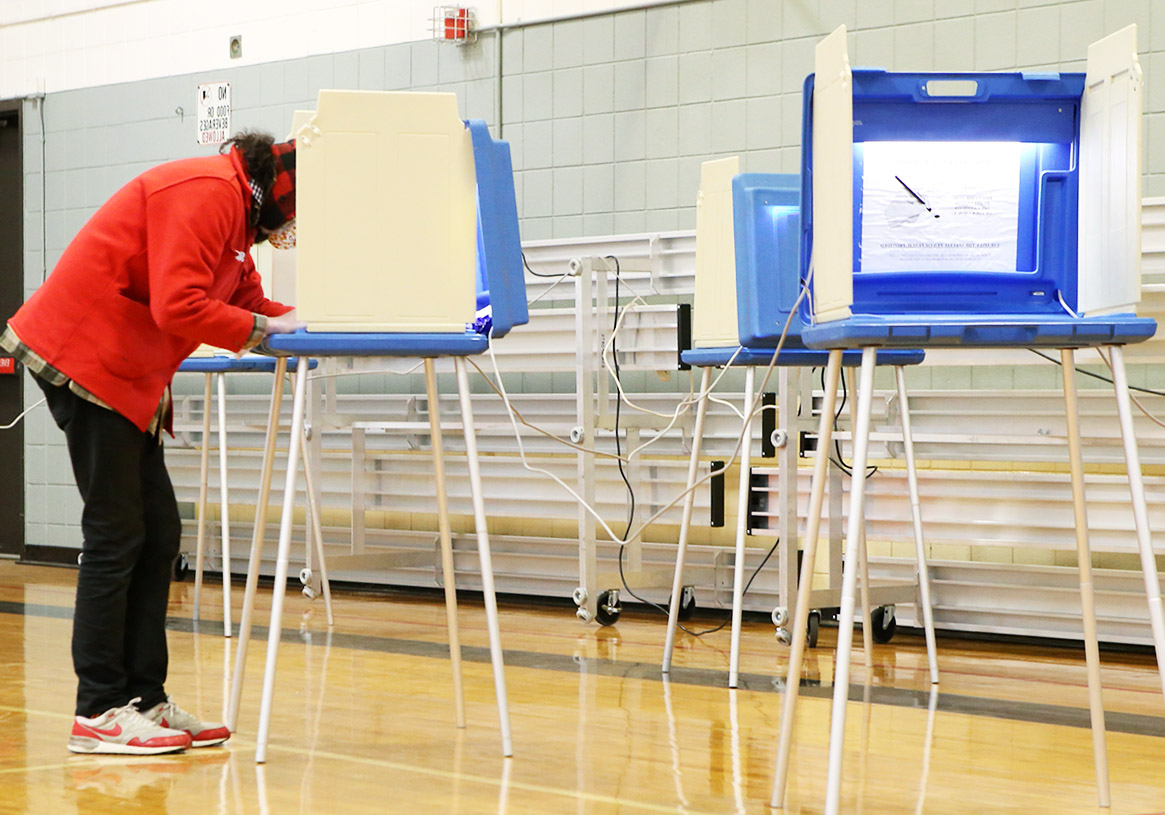Ranked choice voting history
Background
In November 2006, Minneapolis voters approved a change from traditional balloting to instant runoff (later called ranked choice voting) for municipal elections.
The first Minneapolis municipal election using RCV was on November 6, 2009.
Minneapolis uses RCV in all municipal elections
Since the first Minneapolis RCV election in November 2009, we've used the voting method in the 2013, 2017, 2021, and 2023 Municipal Elections and the 2020 Special Election - Council Ward 6.
Read more about how we've adapted our RCV process in the elections since 2009.
Minneapolis uses RCV used for the first time
The 2009 Municipal Election on November 6 marked the first time RCV was used in Minneapolis - and in Minnesota.
Minnesota Election law requires both federal and state certification of all electronic voting systems. Because Minneapolis did not have certified equipment to conduct a RCV election, City elections staff had to hand count the election. This manual process took 15 days to complete.
City redesigns the hand-count process
During a one-week session, the City developed the Minneapolis Method of hand counting ballots at the precinct level. Using the Minneapolis Method, hand counting a 70,000 voter turnout for 22 offices would take us 37 eight-hour shifts with 102 election judges serving as counters and data entry staff. This new method assures we can seat elected candidates on time.
As part of the one-week session, the City:
- Created a RCV training plan for election judges.
- Hired an organization to conduct a impartial survey of voters, candidates, and election workers about implementation.
- Recruited a historian to document the implementation.
City Council confirms the RCV schedule
Feedback from the May 2009 test election and other community feedback led to an improved ballot design.
City conducts an RCV test election
The test election helped inform how to:
- Develop the first-draft ballot design.
- Work with different draft versions of materials for election workers in polling places.
- Start voter outreach efforts. They invited various groups to try RCV and share their feedback on the experience and the ballot.
- Develop the method for hand counting the single and multiple seat offices to determine the winners.
Planning process for the 2009 Municipal Election
Planning for the 2009 Municipal Election had two different schedules. This allowed for the possibility that the City Council could postpone the first use of RCV until a future year.
During this two-year planning time, the City:
- Officially adopted ranked choice voting as the name of the voting method. This change better reflected the process voters use to rank candidates.
- Reviewed the newly-created ranked choice voting city ordinance for any changes.
- Determined the best method to count the multiple seat offices to comply with Minnesota law. It was the Weighted Inclusive Gregory Method, which could produce the same election results in a recount.
Minnesota Ranked Choice Voting Issues Task Force created
Minneapolis elections staff met with then Secretary of State-elect Mark Ritchie. They asked to create the Minnesota Ranked Choice Voting Issues Task Force.
This task force had an open membership and two subcommittees:
- Technical Advisory
- Legislative/Rules
Minneapolis voters approve RCV
Minneapolis voters approved a change from traditional balloting to instant runoff (later called RCV) for municipal elections.
The 2006 Minneapolis Instant Runoff Voting Task Force helped plan and implement RCV.
Minneapolis RCV ordinance
Contact us
Address
Elections & Voter Services980 E. Hennepin Ave.
Minneapolis, MN 55414
Hours
Monday - Friday
8 a.m. - 4:30 p.m.



